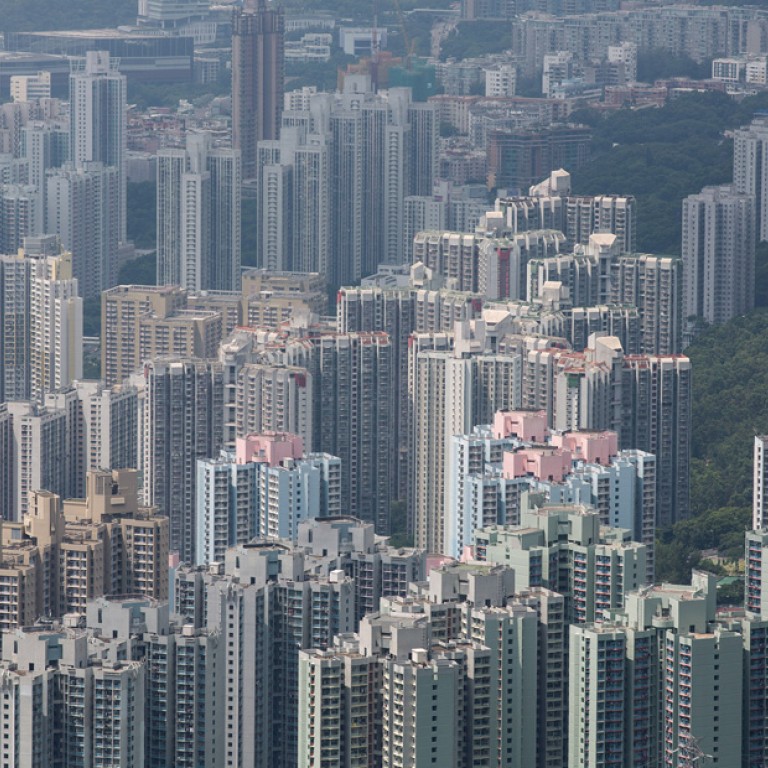
Detective work needed to get to the bottom of ridiculous housing ideas
Mike Rowse says there are more sensible ways to improve Hong Kong's living conditions
There is a well-established technique in detective work known as taking back bearings. Starting from where a body ends up, factoring in the wind and currents, you can work back to where it went into the water.
The same thing applies to the intelligence world. By watching what the opposition says and does and - equally if not more important - does not say or do, it is sometimes possible to work out what they know or do not know about you.
It is like working backwards from the conclusion through the thinking process to the initial proposition.
The same technique can be applied to various aspects of our political life. For example, when Donald Tsang Yam-kuen was chief executive, with Michael Suen Ming-yeung as his housing tsar, they decided to scrap the Home Ownership Scheme and abolish the annual land sales programme .
In place of the latter, we had an application list system which effectively put the big property developers in charge of land disposal.
Thinking backwards from those policy outcomes, obviously the pair had decided that Hong Kong had a surplus of residential accommodation and the percentage of home ownership was sufficient - or even too high.
How else to explain the measures they took to tackle the situation?
In the same vein, property magnate "Uncle Four" Lee Shau-kee has obviously concluded that Hong Kong apartments are too spacious. How do we know this? Because he has the idea of building large numbers of flats of around 300 sq ft in size.
The Housing Society is said to be playing with the idea. Let's hope they hold the meeting in a conference room of the same size so they can experience what is being proposed.
That is by no means the end of the ridiculous ideas being floated. In the urban areas, it is being suggested that existing public housing estates are insufficiently densely developed.
If we use every last scrap of open space within the estate boundary, we might be able to squeeze in a few more blocks. Of course, 10 years later when we have experienced a sharp increase in juvenile delinquency and general depression, we will have to cope with that.
But there won't be any spare sites to build the community facilities we will then need to cope. All that land is also proposed for housing development.
If you think the situation in the urban areas is bad, wait until you hear the "Looney Tunes" coming up for the New Territories. We all know - even the development minister now knows - that Hong Kong's land is about 70 per cent rural, of which a little more than 40 per cent is country parks.
Putting together several different sources, we can deduce that the conclusions some people have reached are broadly as follows: Hong Kong people don't like outdoor exercise and there is no evidence of interest in hiking; container storage and car repair are ideal activities in rural areas; some residents are still living in the 19th century under Imperial Chinese rule; we have too many well maintained recreation facilities.
We know all these things by taking back bearings. The Pandora's Box of country park development has been opened, the "right" of some citizens to have a 2,100 sq ft home must be preserved at all costs and we should concrete over a world-class golf course to show our disdain for the rich.
If we are really serious about improving the living conditions of Hong Kong people, we should pause for a moment and think clearly about what kind of society we want to be living in over the longer term.
While it may not be possible soon, or even ever, to thin out the density of the existing urban areas, we should certainly not be seeking to cram even more people into them.
We should be building bigger apartments rather than tinier ones - nothing less than 500 sq ft saleable area and even that would be much smaller than our comparator city, Singapore.
We should fight like hell to defend every square inch of our glorious country parks and expand them wherever we can. They are the green lung, the breathing space that makes life in our city bearable.
We should recognise that the days of agriculture outside country parks are over, resume the land concerned and develop a series of smaller new towns. Keep the three Fanling golf courses but make at least one of them public.
And, finally, we should consign the small house policy to the dustbin of history.
Now that is the basis of a housing strategy worthy of the name.

